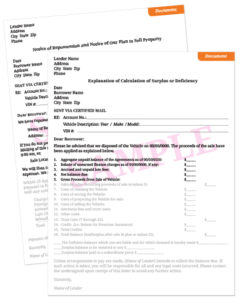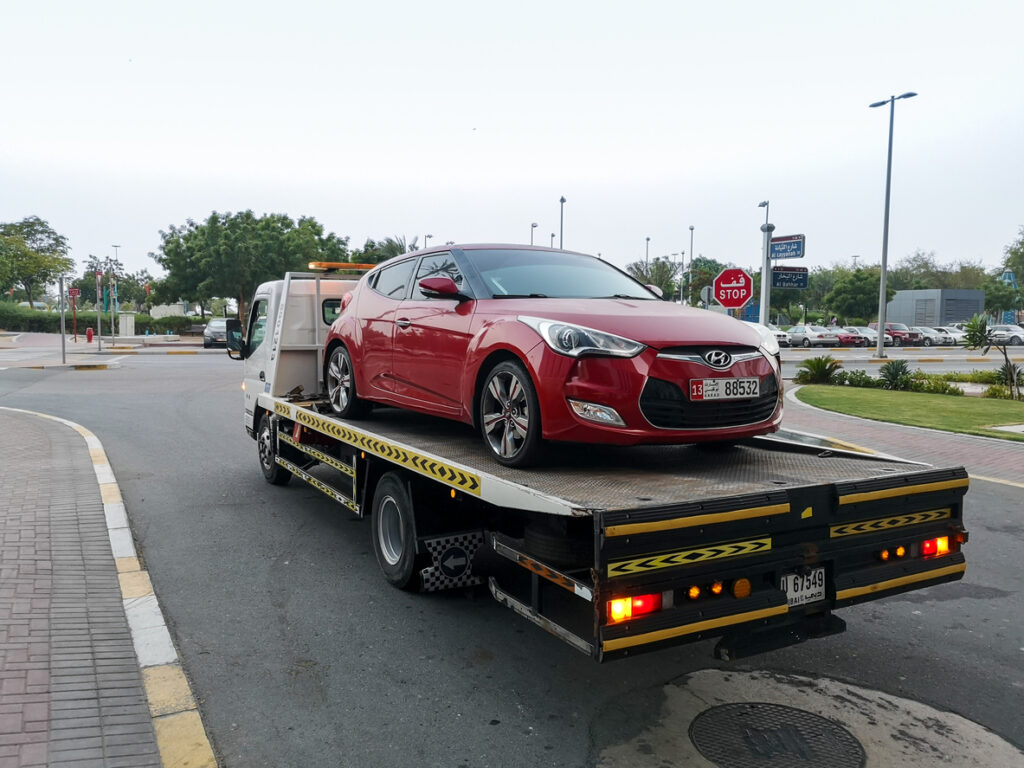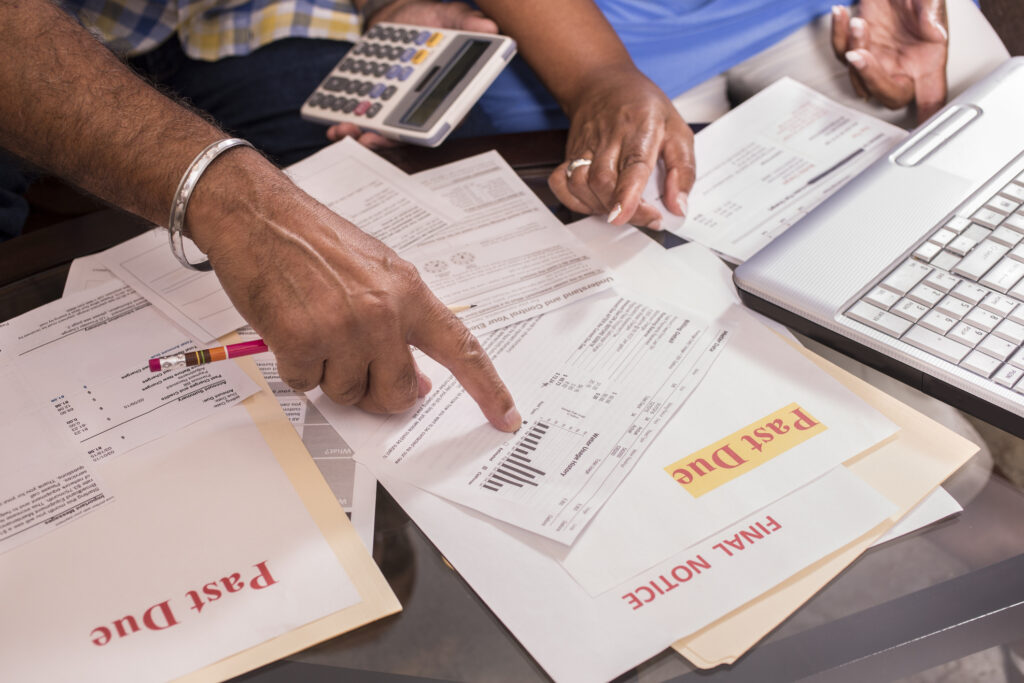 A key aspect of financial wellness is to avoid spending above your means. It may be tempting to apply for an auto loan to buy a more expensive vehicle, but keep in mind that falling behind on payments not only harms your credit, but also leaves your vehicle at risk for repossession.
A key aspect of financial wellness is to avoid spending above your means. It may be tempting to apply for an auto loan to buy a more expensive vehicle, but keep in mind that falling behind on payments not only harms your credit, but also leaves your vehicle at risk for repossession.
 It’s important to stay up to date on all payments. Be sure to pay in full and on time each month. Remember, if you are late or miss a couple payments there may be additional interest or late fees owed to bring your account current. Until these fees are paid, your account is still overdue, even if you pay your next payment in full and on time.
It’s important to stay up to date on all payments. Be sure to pay in full and on time each month. Remember, if you are late or miss a couple payments there may be additional interest or late fees owed to bring your account current. Until these fees are paid, your account is still overdue, even if you pay your next payment in full and on time.
Four steps to ensure your account is current
1) Request Payment History
Contact the lender and ask for a complete loan payment history. You may be able to access this information online, otherwise, you can write a letter to the lender.
The lender’s records will show the amount of each payment you have made, the date on which they were applied to the account, and any additional charges, such as interest or late fees. Review the records to ensure everything appears accurate. Address any overdue payments and late fees as soon as possible. If your account is delinquent, the lender can repossess the vehicle without prior notice.
2) Keep a Record of Auto Loan Payment History
Moving forward, keep a detailed record of your auto loan payments. Your personal records should include the payment date, amount, method of payment, and the date it was applied to the account. Detailed records will keep you on track with payments to ensure you don’t fall behind, and are also useful in the event that the lender makes an error.
3) What to Do if You Fall Behind on Payments
It’s common to experience financial hardship, whether it’s due to job loss, divorce, health issues, or a death in the family. If you’re having difficulty making payments in full and on time, contact your lender. The lender may be willing to defer your payments and apply them to the end of the loan.
Be sure to request the lender provide you with a letter that confirms any changes to the original loan agreement. For example, if the lender agrees to defer payments to the end of the loan, additional costs associated with the deferment will have to be paid to satisfy the loan. It’s important to have a record of any changes in terms and any additional charges you may endure due to deferment.
4) Is your Vehicle at Risk of Repossession
If you determine that your account is past due and think your vehicle may be repossessed, follow these steps and contact your lender. It may still be possible to avoid repossession if you’re able to pay off some of the overdue balance.
Seek Legal Advice

Contact Flitter Milz, an experienced consumer protection law firm, for a no cost consultation to discuss your rights if you believe your vehicle may be repossessed.

 A car repossession can make you feel powerless, as if you don’t have any rights regarding your property. The consequences of a repossession are difficult enough without having to worry about the personal items that were in your vehicle at the time it was taken.
A car repossession can make you feel powerless, as if you don’t have any rights regarding your property. The consequences of a repossession are difficult enough without having to worry about the personal items that were in your vehicle at the time it was taken. Notice of Intent to Sell Property
Notice of Intent to Sell Property It may seem easier to get a loan for the car of your dreams these days, but more people are falling behind on payments and becoming delinquent on their loans. When it becomes easier to get an auto loan, auto loan delinquencies are more common.
It may seem easier to get a loan for the car of your dreams these days, but more people are falling behind on payments and becoming delinquent on their loans. When it becomes easier to get an auto loan, auto loan delinquencies are more common. Once delinquent, the lender may be able to repossess the vehicle without warning. If you think your
Once delinquent, the lender may be able to repossess the vehicle without warning. If you think your  If the lender has reported your payment history inaccurately, send
If the lender has reported your payment history inaccurately, send  Flitter Milz is a nationally recognized consumer protection law firm that represents consumers who have had a vehicle repossessed.
Flitter Milz is a nationally recognized consumer protection law firm that represents consumers who have had a vehicle repossessed.  In most states,
In most states, The police are there to help keep the peace. If the situation becomes volatile, they should assist in diffusing the confrontation between the repo agent and the borrower.
The police are there to help keep the peace. If the situation becomes volatile, they should assist in diffusing the confrontation between the repo agent and the borrower. The police should not assist or enable the repossession.
The police should not assist or enable the repossession. Whether you are behind on payments or not, the lender must follow a
Whether you are behind on payments or not, the lender must follow a  If you believe your vehicle was wrongfully repossessed, gather all of your documents and
If you believe your vehicle was wrongfully repossessed, gather all of your documents and  Sometimes a friend or relative with poor credit may ask you to co-sign on their car loan. It’s important to know that co-signers take on financial responsibilities for the duration of the loan. Co-signing does not just mean that you are a character reference for the borrower. Before you sign, keep the following five points in mind.
Sometimes a friend or relative with poor credit may ask you to co-sign on their car loan. It’s important to know that co-signers take on financial responsibilities for the duration of the loan. Co-signing does not just mean that you are a character reference for the borrower. Before you sign, keep the following five points in mind. An unexpected occurrence like illness or loss of employment can leave you struggling to pay bills on time. If you are unable to pay your car loan on time, the lender may choose to repossess your vehicle.
An unexpected occurrence like illness or loss of employment can leave you struggling to pay bills on time. If you are unable to pay your car loan on time, the lender may choose to repossess your vehicle.  Many times a job loss, illness, death in the family or divorce cause a hardship making it difficult to keep up with financial obligations. When a borrower defaults on auto loan terms, such as late or partial payments, a lapse in insurance coverage, or death of borrower, the lender may choose to repossess the vehicle.
Many times a job loss, illness, death in the family or divorce cause a hardship making it difficult to keep up with financial obligations. When a borrower defaults on auto loan terms, such as late or partial payments, a lapse in insurance coverage, or death of borrower, the lender may choose to repossess the vehicle. Any number of life situations may impact your ability to keep up with car payments. Hours may have been reduced at work. A family member may be seriously ill. You may be going through a divorce. If you believe your vehicle may be at risk of repossession, follow these six simple steps.
Any number of life situations may impact your ability to keep up with car payments. Hours may have been reduced at work. A family member may be seriously ill. You may be going through a divorce. If you believe your vehicle may be at risk of repossession, follow these six simple steps. Co-signers lend their names and good credit histories to the primary borrower, usually when the other borrower cannot obtain credit on his or her own. For example, a parent may co-sign for a child who does not yet have a credit history. Or, someone may be asked to co-sign by a friend or relative whose credit is tarnished, has negative marks in their credit history, or a low
Co-signers lend their names and good credit histories to the primary borrower, usually when the other borrower cannot obtain credit on his or her own. For example, a parent may co-sign for a child who does not yet have a credit history. Or, someone may be asked to co-sign by a friend or relative whose credit is tarnished, has negative marks in their credit history, or a low  Flitter Milz is a nationally recognized consumer protection law firm representing people in matters against lenders, debt collectors and the credit bureaus. Whether you or the co-borrower has fallen behind on payments or not,
Flitter Milz is a nationally recognized consumer protection law firm representing people in matters against lenders, debt collectors and the credit bureaus. Whether you or the co-borrower has fallen behind on payments or not, 





